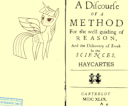Everything Little Thing She Does is of Her Own Free Will (or is it?) · 9:41pm Sep 25th, 2016
I spent this week on a residential course on Popular Science Writing, which has left me bubbling with enthusiasm for putting together my own book proposal. I cycled into town this morning to visit the science section of my local bookstore and get some reference material. While there, I also decided to stop off at my college just to see if I had any mail—only to find the entire street had been closed off and was swarming with security trying to hold back a dense crowd, holding their phones high in the air to try and get a photo over the head of the person in front.
It turned out that this part of Oxford had been temporarily transformed into a set for the “Transformers: The Last Knight” movie. As I have mentioned before, this sort of thing actually happens quite often.
With that random introduction, here are my random thoughts on this week’s episode, Starlight Glimmer, Haycartes, and the science of consciousness.
In this instalment, Starlight Glimmer adds a long list of new spells to the lexicon: Similo Duplexis, Accelero, Fiducia Compelus, Cogeria, and Persuadere. She doesn’t mention the unicorn mage who created these, but I like to think that the last three may be somehow connected with one of Haycartes' methods, who we were introduced to by Moondancer in Amending Fences.
Is everyone familiar with the work of Rene Descartes, the 17th century French philosopher? No? Then go and read Discourse on the Haycart Method for a quick introduction (it’s only 1100 words).
Although he was wrong about of a lot of things, Descartes’ thinking laid the ground for the scientific revolution which would follow his time. He wrote on many different topics including mathematics, physics and anatomy (documented in his book Treatise on Man). He was fascinated by the machinery of the human body, and pondered how this was connected with the abstract world of our thoughts. He came up with a dualist theory in which the mind and body are divided. He thought that while you could build a mechanical automaton to act like a body and respond to stimuli, this could always be distinguished from a real human with a body connected to a mind.
These days, artificial intelligence systems let us pursue this test further than Descartes could have ever imagined, and it remains to be seen how far it will go. Today, most atheist scientists prefer to think of the human body and mind as just an elaborate biochemical machine, which leads on to a related philosophical question: Is free will an illusion?
I like to think that I am choosing to spend my time writing this post, instead of any other activity, of my own free will, but this is not a question which can be answered by experiment. If we think of humans as biochemical machinery, then we have to ask what drives our actions. In the 1970 Benjamin Libet carried out experiments showing that it was possible to detect a brain signal showing a volunteer would take an action, before they became conscious that they had decided to do it. There have been plenty of other neuroscience experiments to suggest we are not aware of the factors which determine our intentions.
But the question of free will is not so clearly defined, and there is no fully accepted answer. As an experimental scientist, at this point I tend to lose interest and instead look for questions which can be tested experimentally. But I note an important difference between the Descartes of our world and Haycartes of Equestria. Descartes’ method was just about philosophical reasoning—how to rationally think through a problem. But Haycartes' methods are practical magic, allowing the magic user to actually project herself into a book. It seems only natural that Haycartes would also develop an experimental method to turn a pony into a mindless automaton in order to investigate the concept of free will.
Unfortunately we do not know how far he got with these investigations, and further experiments are unlikely to receive ethical approval from the Princess of Friendship.






The pursuit of pleasure for its own sake has always seemed like an argument for free will to me. If the body is just a machine, it's going to follow the obvious biomechanical imperatives: Maintain functionality and reproduce. Whence comes the desire for entertainment for such an automaton? Stress can be unhealthy, yes, but fun seems like a conscious exploitation of reward circuits rather than something predetermined by the arrangement of particles the moment after the Big Bang.
Of course, "common sense" holds about as much water as a broken glass, whether in science or philosophy.
My apologies in advance if this marks the first step in turning this comment section into a massive debate on the subject.
People won't do anything without a reason, simple as that. Doesn't matter if you're being pressured into it by her classmates, or it's your own free will. Starlight obviously, at one point, wanted to do that spell. So yes, this was her free will. Even though she figured it out later on, and even if she did it on accident, as long as she wasn't being brainwashed herself, did that because she wanted to. Nobody was forcing her. She did that on her own.
Stress doesn't mean a thing with free will. “You were stressed, so you yelled at someone.” The stress can't control you. It can make you a bit less hesitant to do things. But you were obviously doing this because you wanted to.
My coding skills are so rubbish, Ive been trying for a week to redo a simple bit of data handling using interpreted scripting language, read character, increment a counter, repeat, and it keeps failing. something a coder would do in a minute but turns to me in disgust saying this is so pathetically simple why dont I do it etc 8(
How about, the coder does what he is good at, coding, and I do what Im good at, possibly, which is breaking the rules of reality as we see them to get a better idea of what they are.
If my ideas about the data flow through these recursive structures are even theoretically applicable, Im sure Im getting effects that can be comparable to mental disorders when certain faults, mistakes in processing occur, as in counts occuring too slowly or quickly, or skipping values etc.
Synchronous Networking model?
It all starts with Gutenburg. Then you apply Beysian functions. Then you apply an opposite twin. Then you add opposite twin watchdogs. As in, who watches the watcher? Their Twin.
You start to get extremely complex learning and psychological behaviour with as little as maybe 16 neurons, but because i cant get teh code running, I cant analyse it to see what would correspond to data, what to neurons, what to synapses, hormones etc.
Pity I couldnt talk to fellow students at university over ten year back when my first date stamped version of this code came out. It was designed to process web pages to pre sort and compress them for Turbo loads and Instant searches. Adding extra stages using even simple GPUs would have had some very nice effects.
There is a theoretical possibility that there is no free will, just that because each cubic metre or so in the macro world is a sum of 10^250 planck foam events per second, we havent a chance of a clue of determining the perfect state at any instant in order to be able to predict perfectly whats going to happen next. Therefore the only thing left is to take responsibility, and claim free will.
4226941 ...What? Is there background to this I'm missing? What are you actually trying to do?
The result here seems to bear out Decartes' theory within the MLP world. Starlight created biological automata, that respond to stimuli but don't really do anything on their own. I personally refer to this, in fiction, as Body Control, as opposed to Mind Control. With mind control, some sort of control or pressure is placed on the conscious mind to push it towards a certain end. This is proooobably with Starlight was going for. However, she wound up with Body Control, whereby there appears to be no consciousness and the body (which may or may not have access to the event and/or procedural memories) will only act under direct commands. This has the advantage, from a villains perspective, of not being something that can be 'fought off', but the disadvantage of creating puppets, rather than allies or servants.
Possibly, this was the intent of Haycartes, but from the sound of it, it was not something he was quite able to achieve.
Starlight's moral myopia in this respect is... troubling. She seems to be on the sociopathic spectrum. I've got a story about this but I gotta write it.
4226775 Valid point, though of course not a proof. The problem is, and for the forseeable future will always be, that only one thing DOES happen, so we can't tell if any other outcome was possible, since the other outcomes do not happen (as far as we know). A quantum multiverse would throw a monkey wrench in things, but that would take too long to get into. Though of course a compatibalist would argue that it doesn't matter. I don't really subscribe to that model, though.
I'm not an expert, but I tend to think that the question of whether we have a "free will" is fundamentally a wrong question, rooted in older philosophy that doesn't quite square with what we know about the universe, and that we don't quite yet have the understanding to ask the right questions, let alone answer them with confidence.
While talking about free will being more limited than is obvious has some merit, a complete lack of free will while possibly accurate is pointless. We have to assume free will exists because the alternative is entirely useless. If we really have no choice the discussion doesn't matter if there is no free will will because the result is inevitable. But if it does choosing to believe it doesn't can limit what you can do, so it's utterly useless. Of course if there is no free will then no argument can change your mind if it's not supposed to, but by the same token if there is no free then believing there is also can't hurt because you can't really make a choice anyway.